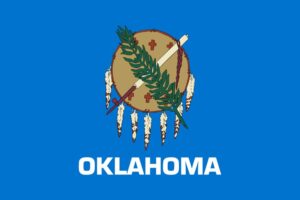What is McGirt v. Oklahoma?
Oklahoma has a storied history regarding its indigenous people. Native Americans, also known as American Indians, established their land in modern-day Oklahoma after the Indian Removal Act of 1830 which forced Native Americans to leave their original lands. This act affected many tribes from different parts of America. On July 9, 2020, the U.S Supreme Court made a decision that claimed the Muskogee (Creek) Reservation boundaries did not recede when Oklahoma became a state in 1907. This decision meant that the Muscogee (Creek) Nation has jurisdiction over its members within the nation’s boundaries, including the members prosecuted using Oklahoma State Law.
Now Oklahoma would have no authority over Muscogee (Creek) Nation within the tribal nation’s newly stated boundaries unless it is a major crime. Some cases may pass to the Supreme court. If the Supreme Court receives a case, Court proceedings may have to follow United States federal law instead.
Wirth Law Office – Chickasha offers our guidance to assist those affected by McGirt decision. McGirt v Oklahoma is the original case that saw Jimmy McGirt, a Native American Man, previously convicted for crimes under Oklahoma law. The case set the precedent for how members from any of Oklahoma’s Five Tribes should face prosecution.
The tribal nations currently affected by this law are:
- Muscogee (Creek) Nation
- Choctaw Nation
- Seminole Nation
- Chickasha Nation
- Cherokee Nation
- Quadpaw Nation
The list of tribal nations who are attempting to use the McGirt case as precedent continues to grow, as more nations that have not formally disbanded see how the clause could possibly work in their favor.
Can I Use McGirt in My Case?
Some tribal members convicted in Oklahoma are now eligible for case dismissal due to the McGirt proceeding. However, those dismissed may still face charges under tribal law or federal law. It’s thought most low-level crimes (typically misdemeanors) fall under tribal jurisdiction, whereas “major crimes” (felonies) are under the purview of state and federal law. However, the term “major crimes” has an obscure definition and is subject to change depending on the county and jurisdiction a case takes place.
Jails and prisons in Oklahoma house a number of Native Americans who are members of the Five Tribes of Oklahoma. Without proper legal counsel, many of these members may serve their entire sentence even though the state of Oklahoma had no right to prosecute said members under Oklahoma law. Call a McGirt lawyer in Chickasha
This is why Chickasha attorneys are in high demand as one could theoretically file their own petition for release from prison, yet one mistake could render that valuable time and effort useless. Consult with a McGirt lawyer in Chickasha who will make it his goal to get your case in front of the Supreme Court.
McGirt in Chickasha County
Chickasha Nation boundary lines are approximately south of Oklahoma City and north of the Texas state border. The east and west boundaries stop just short of Lawton and Durant respectively. There are several counties that are partially or fully contained within the Chickasha Nation Reservation:
- Grady County
- McClain County
- Garvin County
- Pontotoc County
- Stephens County
- Custer County
- Murray County
- Johnston County
- Love County
- Marshall County
- Bryan County
- Coal County
These counties all reside somewhere within Chickasha boundary lines.
Tribes of Oklahoma
Thirty-nine federally recognized tribes are native to Oklahoma. Originally, some of the tribes were native to modern-day Oklahoma before the foundation of the United States of America. An additional five tribes settled in Oklahoma later due to the Indian Removal Act of 1830. At one point, the latter five tribes, dubbed the Five Civilized Tribes, became known as the Five Tribes of Oklahoma, which is their modern name. Each nation is different in culture and tribal constitution.
Low-cost Consultations With a Chickasha Attorney
Native Americans are living in unprecedented times, especially those who live on Indian Reservations. With the Supreme Court’s McGirt decision came a new a whole new list of issues that are affecting the legal process in each tribal nation’s boundaries. Chickasha tribal members are now eligible for judgment under tribal law as Oklahoma has no jurisdiction on tribal land. Now is not the time to back down – stand up and fight for your rights under your tribal constitution.
Do not let the state of Oklahoma prosecute you or your loved ones. Call Wirth Law Office now to receive a free consultation with a Grady County McGirt attorney. We are available via phone call at (405) 272-4100. You can also reach out to us at our email firm@chickashalawyer.com. There is no time to waste – call us now to see how the McGirt v Oklahoma ruling can influence you.

